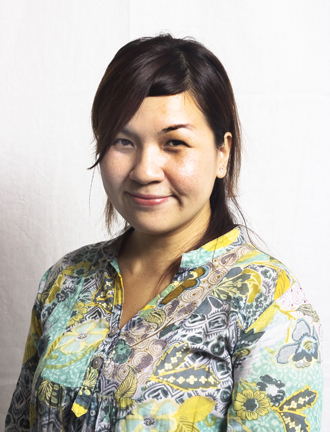Young Children’s Voices in Mathematical Problem Solving
Contributed by Dr Ho Siew Yin and Sng Wei Qin Abbie, from NTUC First Campus, for SingTeach Virtual […]
Read More
Five Humanities teachers share their experiences of using the inquiry-based learning approach in their classrooms. What benefits and challenges does this approach bring to teaching and learning?
Inquiry-based learning certainly sounds like a good way for our students to learn. Through this approach, students become active learners who observe, collect, analyse and synthesize information to answer authentic questions. This will help them to become more adept at solving problems.
But what does it really look like in practice? We posed this question to five Humanities teachers who have tried out the approach in their classrooms.
Ms Fiona Koh, Head of Department (History), Marsiling Secondary School
 Inquiry-based teaching has given me the opportunity to engage my students in a learning experience that gets at the heart of historical problems. The inquiry question serves as a guide to help them discover essential historical knowledge, problematize events in the past, as well as help students challenge their assumptions and knowledge about the past.
Inquiry-based teaching has given me the opportunity to engage my students in a learning experience that gets at the heart of historical problems. The inquiry question serves as a guide to help them discover essential historical knowledge, problematize events in the past, as well as help students challenge their assumptions and knowledge about the past.
Using historical sources to support the inquiry framework has also given me the opportunity to develop students’ reading and interpretive skills within a classroom environment, and as part of my everyday instruction. Together with the question, historical sources serve as a rich resource to help students make better sense of history, such as the multi-causal nature of events or the confluence of personalities and circumstances in shaping history.
But the use of this approach is not without its challenges. The biggest challenge I often face is maintaining students’ level of interest and managing what I perceive as their mental lethargy when participating in inquiry-based exercises. As students are generally used to an approach where the teacher simply transmits the information to them, inquiry-based exercises can be seen as mentally draining. This is especially so after a school day of consecutive lessons, and if students are not predisposed to taking on tasks that require more thinking and evaluating of their own.
Ms Michele Tang, Senior Teacher (Geography), Catholic High School
 The use of inquiry with confidence in my classroom didn’t happen overnight. While I could have read the available literature on the benefits of inquiry, nothing comes close to actually trying it out.
The use of inquiry with confidence in my classroom didn’t happen overnight. While I could have read the available literature on the benefits of inquiry, nothing comes close to actually trying it out.
The different dynamics in each class affects the lesson delivery. How inquiry takes shape in each classroom depends on the students’ co-construction of their knowledge and what they could bring to class discussions.
We looked for opportunities to continue the rich discussions online through the use of Edmodo. After a while, I didn’t feel the pressure anymore of having to answer every question because the boys have developed a culture of helping each other through collaborative inquiry. And yes, we did cover our syllabus content. The added bonus was the rich learning that goes beyond our textbook.
Professionally, I’ve become a better facilitator. The challenge of tuning in to what students are interested in and exploiting these pockets of interest to deepen their inquiry excites me. I have learned to engineer conversations such that it seems that it is driven by them. I have learned what makes a good question. And I am still learning and sharpening these skills during each inquiry lesson.
On top of that, I’ve also developed a stronger mastery in Geography just because I’m learning alongside my students. To see my students being self-directed in their learning, think critically and ethically, and articulate their thoughts in a confident and gentlemanly manner during discussions are just some of the encouraging milestones that we have achieved with inquiry.
Ms Tan Yah Hui, Senior Teacher (Social Studies), Cedar Girls’ Secondary School
 To effectively incorporate inquiry-based teaching and learning definitely requires careful planning. Even in a regular classroom, time and timing is crucial. This is even more so for inquiry, because students need time and space to immerse themselves in the topic to be able to ask questions and seek answers to these questions. The teacher’s careful planning can help tremendously in narrowing down the scope of inquiry, as well as the amount of work to be undertaken.
To effectively incorporate inquiry-based teaching and learning definitely requires careful planning. Even in a regular classroom, time and timing is crucial. This is even more so for inquiry, because students need time and space to immerse themselves in the topic to be able to ask questions and seek answers to these questions. The teacher’s careful planning can help tremendously in narrowing down the scope of inquiry, as well as the amount of work to be undertaken.
Not every student enjoys learning this way though. The “instant-noodles” generation often wants quick answers. So in a way, inquiry indirectly trains our students to be patient and to persevere as they plough through the maze (or haze, pun fully intended).
The hook that will spark students’ curiosity and get them to feel for the topic really becomes an important fuel to sustain them. And of course, the teachers’ vision, encouragement and guidance will go a long way in aiding this process.
Once you see the spark and “Aha!” in the students’ eyes, you know it is well worth the effort invested.
Finally, is there an end to the inquiry process? I guess the process stops when we stop asking questions. So the question to answer that question is: Will we ever stop asking questions? I think I speak for myself that the more I read and discover, the less I feel I know. So why not you try it out and be your own judge on this?
Ms Shariffa Alsree, Teacher (Social Studies), Maris Stella High School
 I believe the inquiry approach empowers students to really study in depth what they find relevant, or better still, intriguing. I see students deeply engaged in discussions or simply contemplate, as a way of making meaning out of the information they learn in the Humanities.
I believe the inquiry approach empowers students to really study in depth what they find relevant, or better still, intriguing. I see students deeply engaged in discussions or simply contemplate, as a way of making meaning out of the information they learn in the Humanities.
They ask questions and learn that there can be not just one, but many answers to a question.
They learn that many things are a matter of perspective, especially when they struggle to classify information that they have gathered into neat categories.
They learn that the universe is really big. Yet, it is unbelievably intertwined. In essence, I think the inquiry approach equips my students with the intellectual, emotional and psychological resources to cope with what we understand as life in this age.
Of course, there are real challenges, such as students not being able to produce anything significant despite hours of discussion. Yet, such difficulties further justify a necessity for inquiry to be practised in the classroom. After all, if these students are not interested to find out what they think they want to know, why would they want to learn about what others think they should know?
I have learned that implementing inquiry in the classroom can be a long-drawn process which requires practice, baby steps and most importantly, faith in my students’ ability. I have also learned that the learning curves are well worth the effort, for both myself and my students. As a classroom community, I find that my students are now more critical and increasingly observant as they forge links between what they experience and what they learn in our inquiry classroom.
Mdm Norsidah Binte Suadi, Head of Department (CCE & Pastoral Care), Bukit View Primary School
 Inquiry helps to develop positive learning dispositions that will help my students become lifelong learners. In their quests for answers, they have become more inquisitive. As a teacher who advocates learning through inquiry, my role is to encourage them to continue to search for answers and skilfully seek and use information to draw conclusion.
Inquiry helps to develop positive learning dispositions that will help my students become lifelong learners. In their quests for answers, they have become more inquisitive. As a teacher who advocates learning through inquiry, my role is to encourage them to continue to search for answers and skilfully seek and use information to draw conclusion.
From my experience, students need guidance during the information-gathering process. My role is to equip them with the necessary tools such as questioning, KWL (Already Know, Want to Know, and Ultimately Learn), mind maps and graphic organizers to help them analyse and synthesize information that they have gathered. This will also help develop their higher order thinking skills.
Through the inquiry process, my students have learned the value of perseverance and also harnessed their collaborative skills. They have also learned to take greater ownership of their own learning. Support and continuous encouragement from their peers have helped my students to become more confident when presenting their ideas, supported with reasoning. They have also learned to respect one another’s opinion.
However, time has always been my greatest challenge. To prepare an inquiry-based lesson, I need time to plan, select and prepare relevant materials that will help students in the inquiry process. Information gathering should move beyond textbook reading. Students should be given opportunity to explore various sources in order to develop their thinking and reasoning skills.